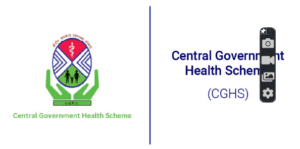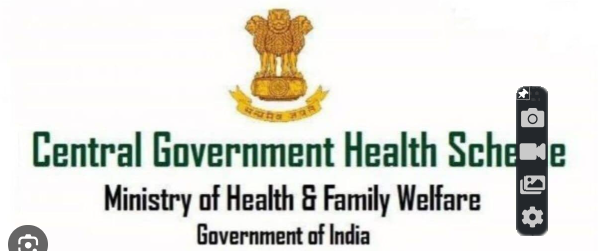
Rules and Guidelines for Central Government Health Scheme (CGHS) as per Swamy’s Handbook 2025
Introduction to CGHS
The Central Government Health Scheme (CGHS) is one of the most beneficial healthcare schemes implemented by the Government of India. Designed specifically for Central Government employees, pensioners, and their dependents, CGHS offers a wide network of medical services across major Indian cities. As per the Swamy’s Handbook 2025, the rules and guidelines have been updated to provide better clarity, enhanced accessibility, and improved healthcare services. Let’s walk you through everything you need to know.
Eligibility under CGHS
Who Can Avail CGHS Benefits?
Central Government employees (excluding railway employees)
Central Government pensioners
Dependents of the above
Members of Parliament
Former Vice Presidents
Freedom Fighters
Journalists accredited with PIB
Certain autonomous bodies and judiciary employees (on approval)
Dependent Criteria
To be considered a dependent:
The family member should reside with the employee.
The income should not exceed the prescribed limit (currently ₹9,000 + DA as per Swamy’s 2025 update).
CGHS Card Issuance Guidelines
How to Apply
Eligible beneficiaries must apply online through the official CGHS portal. For physical submission, forms are available at CGHS wellness centers.
Types of Cards
Plastic Cards with QR Code: For quick verification
Temporary Cards: Issued for new joiners and valid for 3 months
Cities Covered under CGHS
As of 2025, CGHS is operational in over 75 cities, including metro and tier-2 cities. Expansion plans are in place to reach semi-urban areas as well.
Services Covered under CGHS
Primary Healthcare
Consultation with doctors at CGHS wellness centers
Free prescribed medicines
Basic diagnostic tests
Specialist Consultation
Referral system for empanelled hospitals
Super-specialty treatment in CGHS recognized hospitals
Hospitalization Benefits
Cashless treatment in CGHS-empanelled hospitals for cardholders
Indoor treatment with pre-authorization
Empanelled Hospitals and Diagnostic Centres
CGHS ties up with top private hospitals, diagnostics labs, and wellness centers. A regularly updated list is available on the CGHS portal.
Reimbursement Policies
When Reimbursement is Allowed
In case of emergency treatment in non-empanelled hospitals
Treatment taken while traveling or in a non-CGHS city
Non-availability of services in empanelled hospitals
Documents Required
Medical bills
Doctor’s prescription
Discharge summary
Identity proof
Claims must be submitted within 6 months from the date of discharge.
Online Services and Digitalization
Swamy’s Handbook 2025 emphasizes digital transformation:
Online appointment booking
E-referral generation
Teleconsultation through the eSanjeevani platform
Mobile app for locating CGHS centers
Contribution Rates (As per 7th CPC)
For Serving Employees
Monthly contribution is based on grade pay:
₹250: GP up to ₹1800
₹450: GP ₹1801 to ₹2800
₹650: GP ₹2801 to ₹4200
₹1000: GP ₹4201 to ₹6600
₹1250: GP above ₹6600
For Pensioners
Option to pay yearly/lifetime contribution
Lifetime card fees range from ₹30,000 to ₹1,20,000 depending on grade pay
Validity and Renewal
CGHS cards must be renewed before expiry. For pensioners, life-time cards are valid until death but must be updated if the address or dependent status changes.
CGHS and Non-CGHS Areas
If an employee or pensioner resides in a non-CGHS city:
They are entitled to Fixed Medical Allowance (FMA) – ₹1000 per month
Reimbursement allowed under specific conditions
CGHS for Senior Citizens
Swamy’s Handbook encourages elderly healthcare:
Priority consultation slots
Home visits in critical cases (pilot basis)
Simplified claim processing for pensioners above 75 years
Medical Advance Facility
In case of major surgeries or long-term treatment, medical advance can be availed with:
Doctor’s recommendation
Estimate from CGHS hospital
Approval from competent authority
Wellness Centers and Timings
Open from 7:30 AM to 2:00 PM (Monday to Saturday)
Emergency duty doctors available in some centers
Sunday closed except for emergency cases in selected centers
Important Points as per Swamy’s Handbook 2025
Aadhaar-based authentication mandatory
Revised referral process with QR code verification
Direct online claim submission for pensioners
Regular health check-ups encouraged annually
Grievance Redressal Mechanism
Have a complaint?
Call the toll-free helpline: 1800-208-8900
Submit written complaints at wellness centers
Regular monitoring by MoHFW
Conclusion
The Central Government Health Scheme (CGHS) stands as a beacon of welfare for India’s central government workforce. The Swamy’s Handbook 2025 brings much-needed clarity, upgrades, and simplifications that aim to enhance the reach, transparency, and efficiency of the scheme. Whether you are a serving employee or a retired pensioner, understanding and utilizing CGHS to its full potential can secure quality healthcare for you and your family, without the financial strain. Stay informed, use your benefits wisely, and take care of your health — it’s the most valuable asset you’ve got!
FAQs
1. Can I use CGHS if I’m posted in a non-CGHS city?
Yes, you are entitled to FMA, and reimbursement is allowed under emergency or special conditions.
2. How do I book a doctor’s appointment under CGHS?
You can log in to the CGHS portal or mobile app and select your preferred doctor and time slot.
3. Is CGHS cashless for all treatments?
Cashless service is available at CGHS-empanelled hospitals for both serving and retired beneficiaries with a valid CGHS card.
4. What if my CGHS card is lost or damaged?
You can apply for a duplicate card online. A nominal fee may be charged for reissuance.
5. How long does reimbursement take?
Usually, it takes around 60 days if all documents are in order. Pensioners can track the status online.
Please don’t forget to leave a review.

For more information and updates please follow the page and don’t forget to leave your comment.

Disclaimer:
This blog post is intended for informational purposes only. All rights, references, and credits related to official government service rules and guidelines belong to Swamy’s Publications, the authoritative source on these matters. We acknowledge and extend our courtesy to Swamy’s Publication for their valuable work in compiling and publishing official content. This blog does not claim ownership or authorship of any content originally published by Swamy’s Publications.
